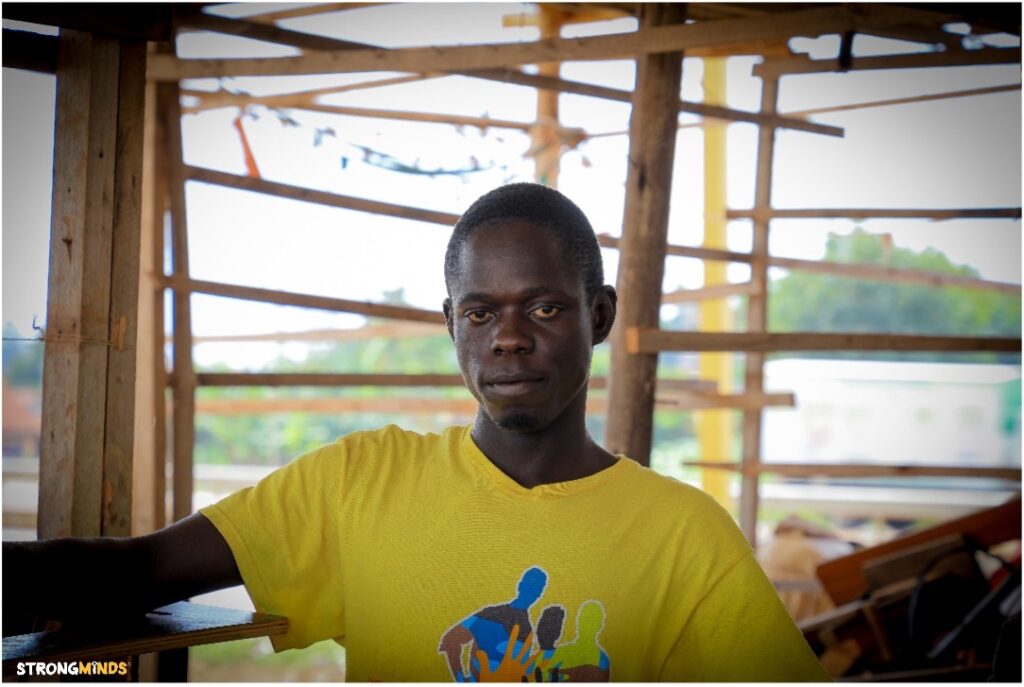Addressing Male Depression to Transform Families and Communities
Depression affects millions of people worldwide, yet its impact on men remains significantly underreported and undertreated, especially in sub-Saharan Africa where the internalization of masculine norms has made men more susceptible to mental health problems. As an organization, we recognize the necessity of addressing mental health for all people, not just women and adolescents. This Men’s Health Month, we want to shed light on understanding and addressing depression in men, highlighting its broader implications on families and communities.
When we initiated a pilot program in 2016 to treat a small number of men for depression, we encountered several gender-specific challenges. The prevalence of male depression is lower than women, making it harder to identify and treat men effectively. Men are also typically less forthcoming about the triggers of their depression, necessitating more time and energy in pre-group sessions to build trust and elicit meaningful conversation.
Despite these challenges, including men in our programs yields substantial benefits. Research shows that improving women’s mental health benefits their households, and our anecdotal evidence suggests similar outcomes when men’s depression is addressed. Many women we treat have requested similar services for the men in their lives — spouses, brothers, sons, and neighbors — and by responding to these requests, we not only support women but also enhance the overall well-being of the family unit.
Additionally, men often hold key positions as community leaders and decision-makers, and providing mental health services to them helps us build strong relationships and operate more effectively within communities.
The success stories we hear from men inspire us to persist in our efforts to treat depression in both genders, reinforcing the importance of inclusive mental health care.
 In the case of Kairu, a 23-year-old man living in a suburb of Kampala, Uganda, a StrongMinds therapy group helped him turn his life around. After fleeing his home village due to mistreatment from his father, Kairu landed in Kampala, resulting in a downward spiral of depression, crime, and substance abuse. Struggling to adjust to city life, Kairu failed to secure a job and couldn’t put food on the table.
In the case of Kairu, a 23-year-old man living in a suburb of Kampala, Uganda, a StrongMinds therapy group helped him turn his life around. After fleeing his home village due to mistreatment from his father, Kairu landed in Kampala, resulting in a downward spiral of depression, crime, and substance abuse. Struggling to adjust to city life, Kairu failed to secure a job and couldn’t put food on the table.
In his pursuit of stability, he joined a gang and turned to crime, which only deepened his depression. He found himself abusing substances to cope, further isolating him and compounding his despair. “I went into crime because I was depressed and did not know what to do. I would have been killed,” he reflects.
When a StrongMinds volunteer reached out to Kairu, they introduced him to the concept of depression. Skeptical but with little else to lose, he enrolled in a support group where he found understanding and encouragement from the other men. With a push from the group, he reconciled with his father and began the road to recovery.
Today, Kairu has transitioned from a life of crime to trading and business. He owns two clothing stores and a salon, providing him with fulfillment and the ability to provide for his family. “Now I know there is power in being in a supportive group, thanks to StrongMinds,” he says.
Kairu’s inspiring story is just one of many; it’s a testament to the power of support and the possibility of transformation. By treating male depression, we can create ripple effects that uplift entire households and communities.
